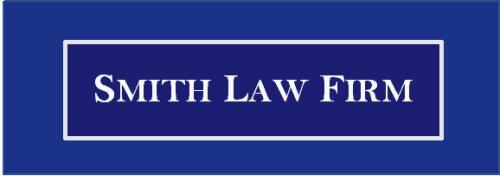Best Real Estate Lawyers in Toronto
Share your needs with us, get contacted by law firms.
Free. Takes 2 min.
Free Guide to Hiring a Real Estate Lawyer
List of the best lawyers in Toronto, Canada
Canada Real Estate Legal Articles
Browse our 1 legal article about Real Estate in Canada written by expert lawyers.
- Buying Property Abroad as a Canadian: A Legal Checklist
- Real estate law in Canada is mostly provincial, so rules on land registration, landlord-tenant rights, condos/strata, and land transfer tax differ by province and territory. For a typical home purchase, budget roughly 2% to 5% of the purchase price for closing costs in addition to your down payment, including land... Read more →
About Real Estate Law in Toronto, Canada
Real Estate Law in Toronto, Canada governs the buying, selling, leasing, and ownership of properties. It includes legal aspects related to residential, commercial, and industrial properties. Real Estate transactions involve complex legal processes, contracts, and potential risks. Understanding these laws is crucial to protect your rights and investments in the real estate market.
Why You May Need a Lawyer
There are various situations in which you may require legal assistance in Real Estate:
1. Buying or Selling Property: A lawyer can guide you through the transaction process, ensure the legality of the documents, and protect your interests.
2. Lease Agreements: If you are renting or leasing a property, a lawyer can review and negotiate the terms to avoid unfavorable conditions.
3. Contract Disputes: In case of a disagreement or breach of contract, a lawyer can provide legal representation and help resolve the matter.
4. Property Disputes: If you are involved in a boundary dispute, adverse possession claim, or any other ownership conflict, a lawyer can assist in protecting your rights.
5. Development Projects: For complex development projects, legal advice can ensure compliance with zoning laws, permits, and environmental regulations.
Local Laws Overview
In Toronto, Canada, several key aspects of local laws are relevant to Real Estate:
1. Land Transfer Tax: Toronto imposes a municipal land transfer tax on properties purchased within the city. It is essential to understand the tax implications when buying or selling a property.
2. Zoning Bylaws: Zoning regulations govern land use, building height and size, setbacks, and other factors. Familiarize yourself with these bylaws to ensure compliance when using or developing a property.
3. Rent Control: Toronto has rent control guidelines that limit the amount landlords can increase rent. Understanding these regulations is crucial for landlords and tenants.
4. Condominium Law: If you are buying or living in a condominium, there are specific laws and regulations governing these properties. Consult a lawyer to understand your rights and responsibilities as a condo owner.
Frequently Asked Questions
1. Can I buy a property in Toronto as a non-resident?
Yes, non-residents can purchase properties in Toronto. However, there may be restrictions and additional taxes for foreign buyers. It is advisable to consult a lawyer for guidance.
2. How do I obtain a mortgage for a property purchase?
You can approach multiple lenders, including banks and mortgage brokers, to obtain a mortgage. They will evaluate your financial situation, credit score, and property value to determine the loan amount and interest rates. A lawyer can review the mortgage agreement before you sign it.
3. What are the costs involved in buying a property?
Aside from the property price, you may incur costs such as land transfer tax, legal fees, appraisal fees, home inspection fees, and mortgage insurance premiums. Your lawyer will provide a detailed breakdown of these costs.
4. What is the role of a real estate agent in Toronto?
A real estate agent helps buyers and sellers navigate the market. They assist in property search, negotiations, and transaction processes. While hiring an agent is not mandatory, it can be helpful, especially for first-time buyers or those unfamiliar with the market.
5. How long does the closing process take for a property purchase?
The closing process can vary, but it typically takes around 30 to 90 days from the acceptance of the offer to the completion of the transaction. Factors such as financing, inspections, and negotiations can affect the timeframe.
Additional Resources
Below are some resources that can be helpful for legal advice in Real Estate matters:
- The Law Society of Ontario: www.lso.ca
- Real Estate Council of Ontario: www.reco.on.ca
- Toronto Real Estate Board: www.trebhome.com
Next Steps
If you need legal assistance in Real Estate, follow these steps:
1. Identify your specific legal concern or question related to real estate.
2. Research and shortlist reputable real estate lawyers in Toronto.
3. Schedule a consultation with the selected lawyers to discuss your situation.
4. During the consultation, ask questions and assess the lawyer's expertise and experience.
5. Choose a lawyer who understands your needs and has the necessary knowledge in Real Estate Law.
6. Retain the lawyer by signing an engagement agreement, which outlines the scope of their services and fees.
7. Work closely with your lawyer, providing all necessary documents and information, to proceed with your real estate matter.
Remember, finding the right lawyer is essential for a smooth and successful experience in real estate transactions.
Lawzana helps you find the best lawyers and law firms in Toronto through a curated and pre-screened list of qualified legal professionals. Our platform offers rankings and detailed profiles of attorneys and law firms, allowing you to compare based on practice areas, including Real Estate, experience, and client feedback.
Each profile includes a description of the firm's areas of practice, client reviews, team members and partners, year of establishment, spoken languages, office locations, contact information, social media presence, and any published articles or resources. Most firms on our platform speak English and are experienced in both local and international legal matters.
Get a quote from top-rated law firms in Toronto, Canada — quickly, securely, and without unnecessary hassle.
Disclaimer:
The information provided on this page is for general informational purposes only and does not constitute legal advice. While we strive to ensure the accuracy and relevance of the content, legal information may change over time, and interpretations of the law can vary. You should always consult with a qualified legal professional for advice specific to your situation.
We disclaim all liability for actions taken or not taken based on the content of this page. If you believe any information is incorrect or outdated, please contact us, and we will review and update it where appropriate.
Browse real estate law firms by service in Toronto, Canada
Toronto, Canada Attorneys in related practice areas.















